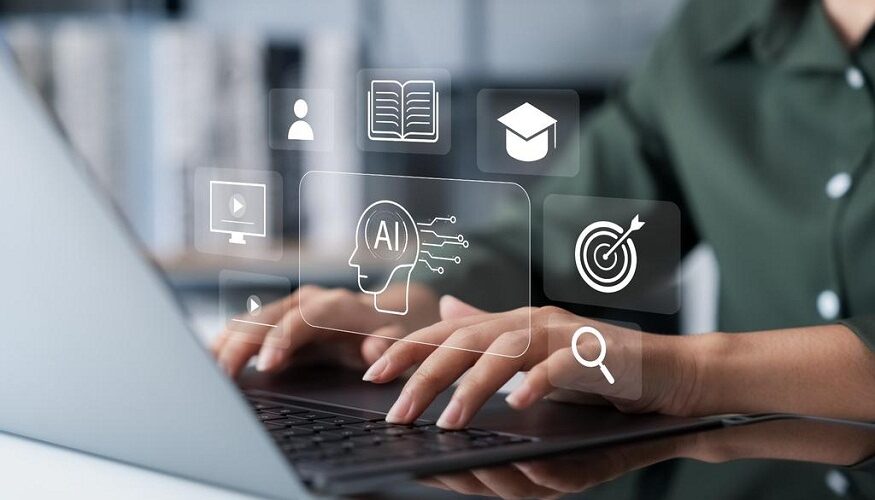AI is revolutionising healthcare in ways never seen before. Moving past mere hype, it is solving deep-rooted medical challenges. Patients struggling with high medical bills now use AI tools to analyse charges, detect errors, and negotiate better rates, helping them regain financial control over their healthcare.
AI is also being included by healthcare organisations to lessen the strain on medical personnel. In order to free up crucial time for physicians and nurses to concentrate more on patient care, Apollo Hospitals in India, for instance, is investing in AI to automate repetitive chores like medical documentation. These real-world uses highlight AI’s revolutionary potential to improve patient experiences and healthcare delivery systems.
How AI impacts healthcare technology
The infusion of AI into healthcare technology has led to remarkable advancements. AI algorithms can swiftly analyse extensive datasets, identifying patterns and anomalies that might elude human observation. AI proves especially useful in medical imaging, assisting radiologists in identifying early-stage diseases and enabling timely care. For example, AI-powered scanning tools can detect the first signs of conditions like cancer with outstanding precision, facilitating quicker and more effective medical interventions.
How AI in healthcare improves patient care
AI’s contribution to patient care is multifaceted. By analysing individual health data, AI enables the development of personalised treatment plans, ensuring therapies are tailored to each patient’s unique needs. Moreover, AI-driven predictive analytics can forecast potential health events, allowing for proactive measures that enhance patient outcomes. For instance, AI can predict disease outbreaks, enabling healthcare providers to allocate resources effectively and implement preventive strategies.
5 key benefits of AI in the healthcare sector
Enhanced diagnostic accuracy
AI systems are excellent at analysing large volumes of medical data, which improves the accuracy of diagnoses. In radiology, AI can identify subtle patterns in imaging studies, such as X-rays and MRIs, facilitating early disease detection and timely treatment interventions. AI-powered tools also assist in analysing pathology slides, helping detect cancers and other conditions at earlier stages. With machine learning continuously refining its predictive models, diagnostic errors are significantly reduced, ensuring more accurate medical assessments and improving patient outcomes.
Personalised medicine
Through the analysis of genetic, environmental, and lifestyle factors, AI supports the creation of customised treatment plans tailored to individual patient needs. Artificial intelligence (AI) is transforming healthcare by enabling personalised treatment strategies. By analysing individual biomarkers, AI assists physicians in selecting optimal medications and dosages, thereby reducing the likelihood of adverse drug reactions. In oncology, AI facilitates precision medicine by identifying specific genetic mutations within tumours, allowing for targeted therapies that improve patient prognoses and survival rates.
Improved administrative efficiency
The integration of AI in healthcare automates routine tasks like scheduling appointments, handling billing, processing insurance, and documenting medical records. This automation decreases the administrative burden on staff, allowing them to dedicate more time to patient care and improving operational efficiency. Furthermore, AI-driven chatbots and virtual assistants offer instant responses to common medical questions, boosting patient engagement and reducing pressure on customer service teams.
Predictive analytics
By examining historical and real-time data, AI can predict patient health trends and potential risks. With AI-driven predictive analytics, doctors can foresee disease outbreaks, track chronic conditions, and identify vulnerable patients before complications occur. This helps healthcare professionals introduce preventive measures, reducing hospitalisation rates and improving patient outcomes. Additionally, AI is incorporated into wearable health devices to detect early warning signs of ailments such as heart disease and diabetes, facilitating timely interventions and effective disease management.
Remote patient monitoring
AI-integrated wearable devices and health apps enable continuous tracking of vital signs like heart rate, blood pressure, and oxygen saturation. This real-time monitoring helps detect health concerns early, ensures timely medical intervention, and minimises hospital visits, particularly for individuals managing chronic conditions such as diabetes or hypertension. AI can analyse patterns in patient data, alerting healthcare providers to anomalies that may indicate an impending medical emergency.
Notable AI applications in healthcare
Several AI applications have made significant impacts in healthcare:
AI in drug discovery: AI accelerates the drug development process by predicting how different compounds will interact with targets, thereby reducing the time and cost associated with bringing new medications to market.
Virtual health assistants: AI-powered chatbots improve patient engagement and accessibility to care by giving patients prompt answers to health-related questions, helping with drug administration, and providing mental health support.
AI in surgery: Robotic surgical systems powered by AI offer enhanced precision, flexibility, and control during procedures, leading to minimally invasive surgeries and improved patient recovery times.
Challenges and limitations associated with AI implementation in healthcare
Despite its benefits, AI implementation in healthcare faces several challenges:
Data privacy and security: Ensuring the security of patient data demands rigorous protocols to prevent unauthorised access and uphold regulatory compliance, fostering trust.
Integration with existing systems: AI integration into existing healthcare systems can be difficult and expensive, involving major adjustments to staff training and procedures.
Ethical considerations: The use of AI raises ethical questions, such as potential biases in algorithms and the need for transparency in AI-driven decisions.
Conclusion
AI has the potential to revolutionise healthcare by improving diagnostic precision, tailoring treatments, streamlining administrative tasks, leveraging predictive analytics, and enabling remote patient monitoring. In the context of NBFCs and the online marketplace, AI-driven financial solutions can facilitate smooth healthcare financing, ensuring better access to medical services. However, overcoming issues related to data security, system compatibility, and ethical concerns is essential for its fair and effective integration. As technology advances, the responsible adoption of AI will be vital in enhancing patient outcomes and refining healthcare processes.

